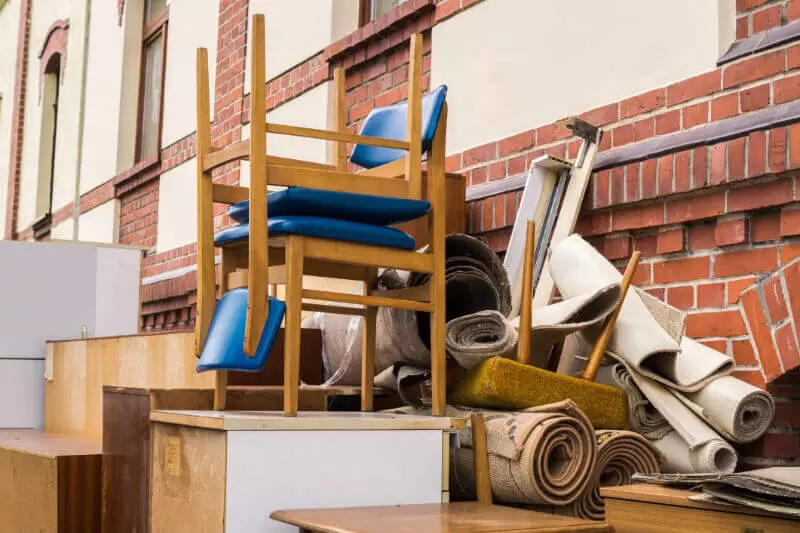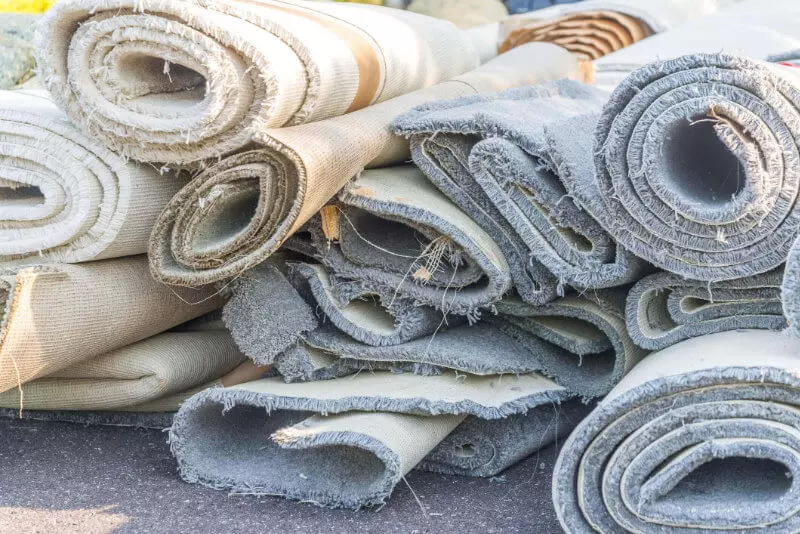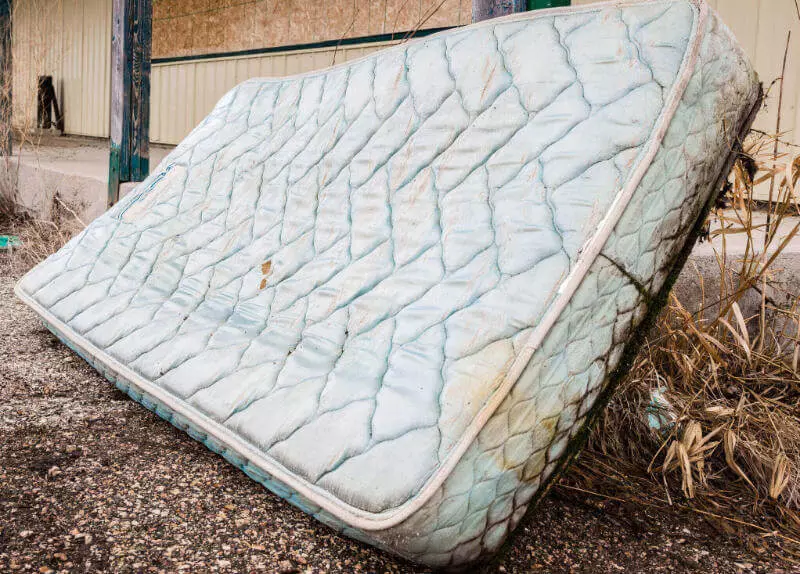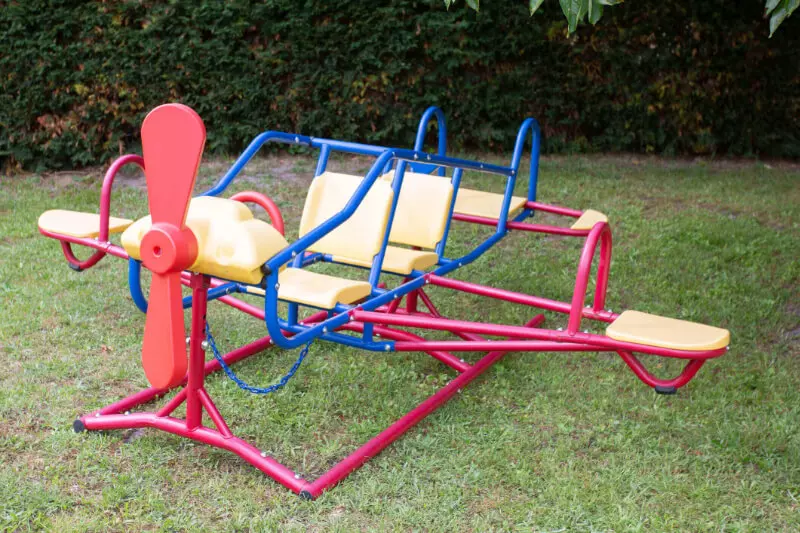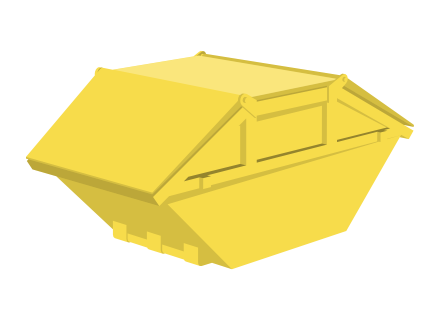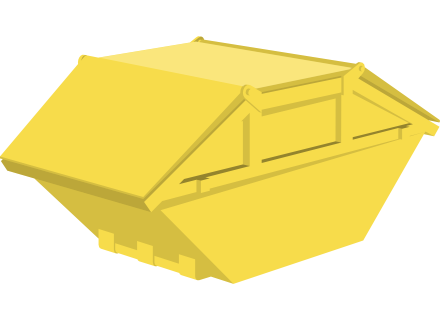We would like to use our own cookies, third-party cookies and similar technologies for statistical and marketing purposes. Customise your preferences by selecting the options below. Of course, you can also change your settings again afterwards. Learn more in our privacy policy.
Dispose of bulky waste
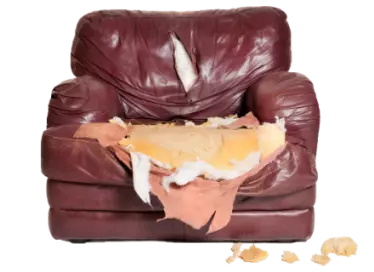
What is bulky waste, actually?
Bulky waste refers to bulky items for which no further use can be found. In Germany, there is no universal definition of what counts as bulky waste and what does not, which is why the acceptance criteria can vary from one disposal company to another. Overall, it can be said that bulky waste is limited to items that belong to the furnishings of flats, houses and offices, such as pieces of furniture, carpets or mattresses. We will be happy to advise you on which local acceptance criteria you should take into account and which container size is right for you.
This is allowed
Bulky waste usually accumulates during clear-outs, renovation work, removals or household liquidations. The inventory, such as furniture, carpets or mattresses, can easily be disposed of in a bulky waste container.
Caution: Large quantities of residual waste must not be disposed of in the container. Small amounts of contamination, e.g. glass, ceramics or metal, are accepted by most waste disposal companies and usually do not pose a problem.
Movable furnishings that are not or were not connected to the house
Furniture (e.g. cupboards, shelves, chairs, upholstered furniture)
laminate
Textiles (e.g. carpets, mattresses, clothing)
Parquet, laminate, PVC flooring
Suitcases
Window wood or door wood / doors (without glass)
Bicycles
Crockery
Toys, books, paper
Attachments made of e.g. glass, ceramics, metal (e.g. mirror or showcase)
This is prohibited
In addition to the amount of household waste, the disposal of electronic waste via a container is not permitted. Installations, such as sinks and toilets, or other materials assigned to construction or demolition waste are also not permitted.
Furthermore, no materials for which there are separate disposal containers, such as garden waste, outdoor wood (fences, palisades) or soil and sand, are allowed. In order to recycle as many valuable materials as possible, the bulky waste is sorted and recycled accordingly.
fixed fixtures in the house such as windows doors, WC, bathtub, washbasin, etc.
outdoor timbers such as fences or palisade
hazardous waste and special waste (e.g. paints, varnishes, batteries)
electrical appliances and refrigerators
batteries
construction waste
washbasins, toilets
earth / sand
garden waste
car tyres and car parts
burnt furniture / burnt wood
styrofoam
Order the right skip now!
We find the right partner and organise everything around the rental digitally and easily. So that you can concentrate fully on your project. Click here to go to the online shop: Simply enter your postcode, select the type of waste and container and let's gooo!
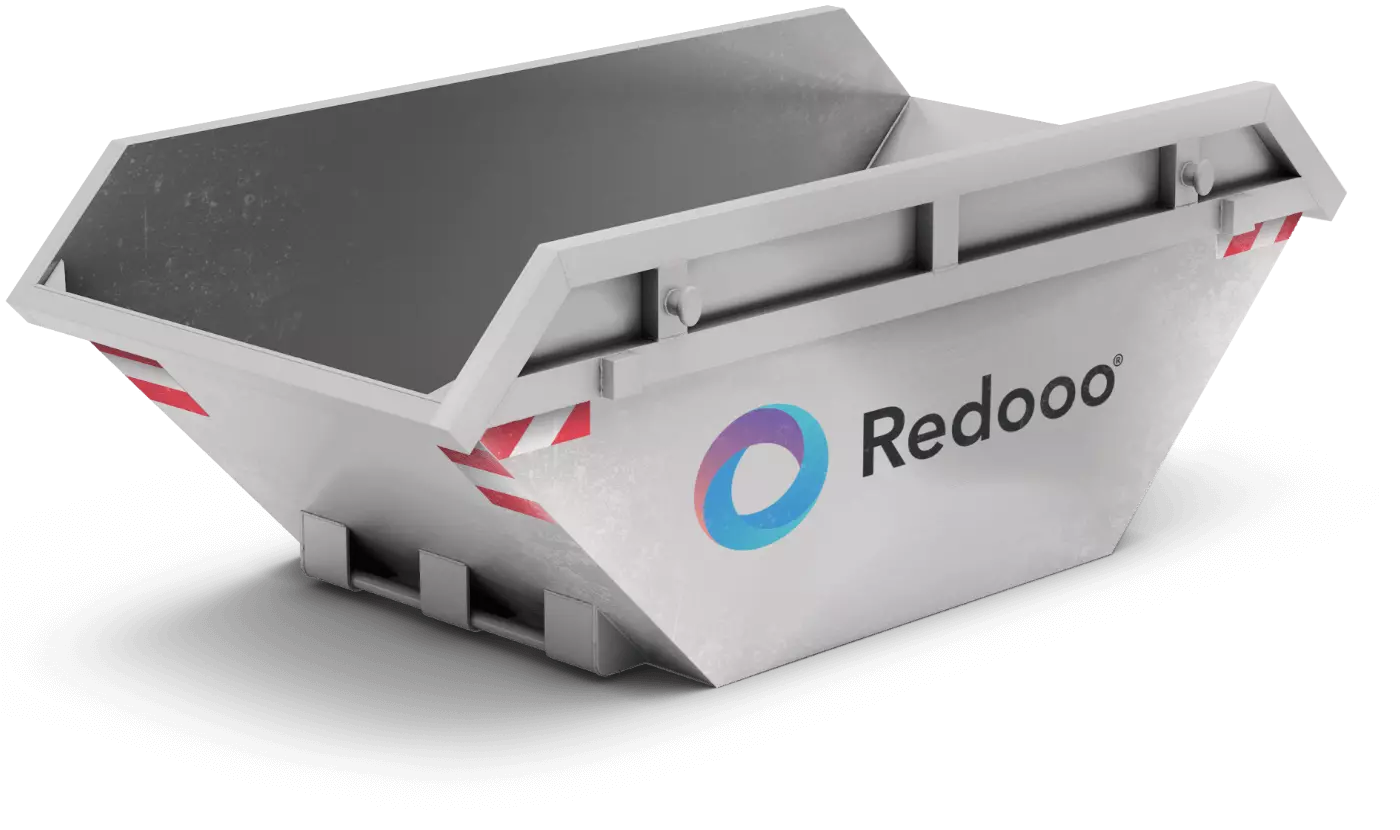
Information on the disposal of bulky waste
How much bulky waste can I have disposed of free of charge by the city or municipality?
Unfortunately, there is no general answer to how much bulky waste a city or municipality can dispose of free of charge. Each city/municipality has its own rules. In principle, the city or municipality collects and disposes of normal household quantities free of charge.
In Hamburg, for example, bulky waste is collected free of charge by the WZV only once a year, or alternatively you can hand in your bulky waste at the WZV recycling centre. The collection or delivery of bulky waste must be applied for by each household. It is not possible to register your bulky waste in Hamburg again free of charge in the current calendar year. The amount of bulky waste collected and handed in depends on the size of your waste container.
In contrast to Hamburg, having bulky waste collected by AWM in Munich is not free of charge. There you pay a flat rate of 40,00€. Each m³ or part thereof costs €15.00 and an additional €50.00 is charged for an appointment collection. The waiting time for a bulky waste collection in Munich is three to four weeks.
If you live in Leipzig, you can take your bulky waste to one of the recycling centres free of charge. There you must prove that you are officially registered in Leipzig. Another option is the Stadtreinigung Leipzig collection service, which is subject to a charge. The staff will collect a maximum of 4 m³ of bulky waste per household from your property by appointment. However, you must first purchase a token at one of the Stadtreinigung Leipzig sales points. The fee for collecting your bulky waste from the pavement is €21.00. The collection of bulky waste, directly from the building or from your property, costs 50.00€ in Leipzig.
In general, it can be said that every city and municipality has its own rules when it comes to bulky waste disposal. In most cities and municipalities, the disposal of 2 m³ of bulky waste is unproblematic and in many cases even free of charge. However, from a larger quantity, of approx. 5 m³ of bulky waste, you will need a bulky waste container.
General notes
Filling: Containers may be filled to a maximum of the loading edge. The contents of the container must not exceed the side walls. At this point, independent raising of the side walls is not permitted. No liquid waste may be filled into the container.
Filling weight: Containers whose filling weights exceed a weight of 10 tons may not be transported. Please pay attention to the filling conditions and maximum weights. Overfilled containers cannot be transported safely and must be unloaded by the customer.
Access: Make sure that the vehicle has sufficient space and that access is possible without any problems. The minimum clearance height is 4 metres and the clearance width 3.50 metres. Since the container is lowered or unrolled to the rear, up to 15 metres of space is required. To facilitate manoeuvring, an additional length of 10 to 15 metres should be kept free.
Installation: A suitable surface must be available, i.e. it should be paved, level and stable. Sensitive ground is not suitable to be driven over by a truck, as it can otherwise be damaged by the heavy weight. Furthermore, a container cannot be lifted over fences/walls. Only a maximum height of 30cm can be exceeded.
Permission: If you want to place the container in a public space, you are responsible for the general duty of road safety. Even if we support you in this and help you apply for the necessary official placement permits, you are still responsible.

